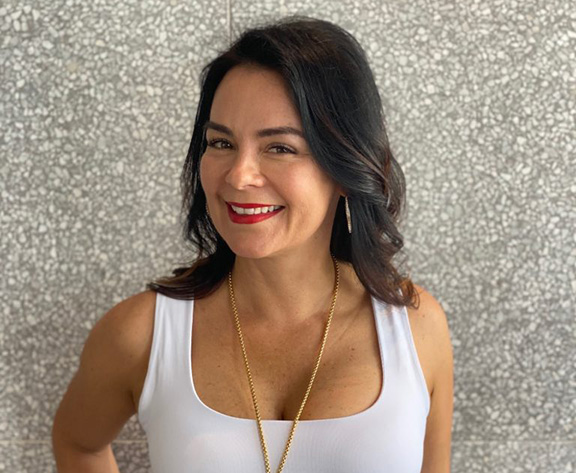
Have you ever been told a Bachelor of Arts (BA) is useless? Don’t believe the outdated stereotype! BA alumni have well proven that a degree in the Arts can take you far in life. Flinders alumni Renae Leith-Manos is the perfect example of how multifaceted your career can be with a Bachelor of Arts.
Having worked in newspapers, magazines, TV, radio and digital media, Renae is regularly called upon as a commentator, media consultant and journalist. Nowadays, she divides her time 50/50 between her two homes in Jakarta, Indonesia, and Sydney.
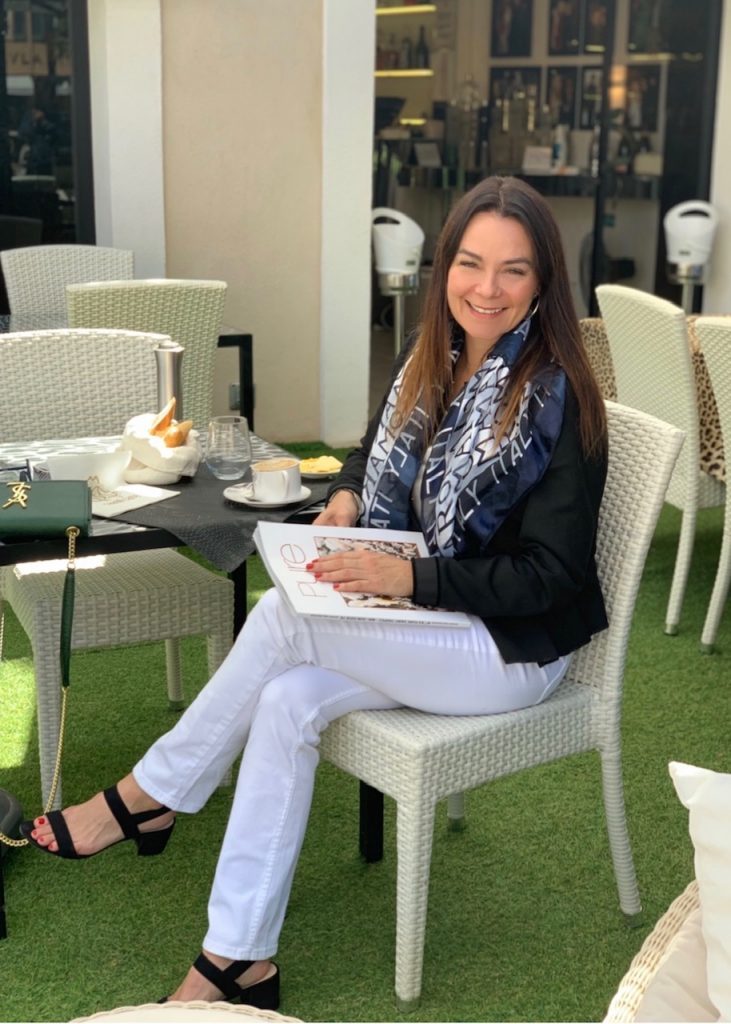
Choosing a Bachelor of Arts at Flinders
Renae had always wanted to become a singer. She spent her childhood and youth performing around Adelaide and the world. After having to discontinue her music degree as she had growths on her vocal cords, she decided to start a Bachelor of Arts at Flinders.
“It’s a great example of how life can pivot. Because I had a music background, I was absolutely determined to be a journalist. I wanted to interview singers, celebrities and famous people. I tried to get into journalism for two years in a row and failed. Then I looked at the Bachelor of Arts at Flinders and thought, actually, this is really good, because I can do a double major, which I did in Politics and English, and it offered a lot of flexibility. I’d heard great things about the uni. So that’s the direction my life took, and I did the degree there.”
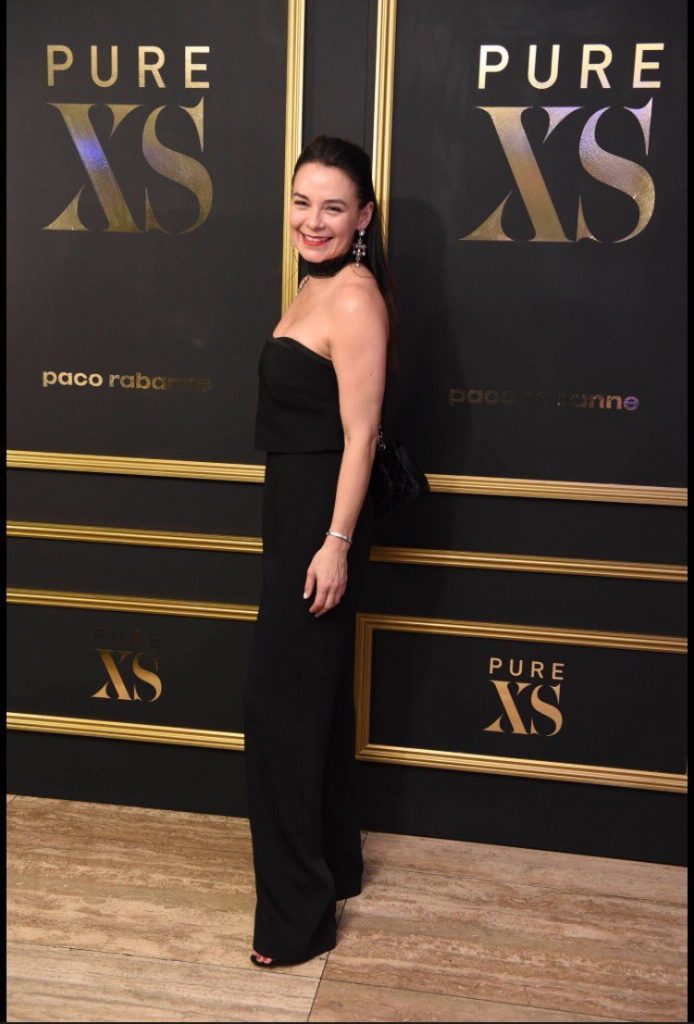
Moving into the industry
Renae says she was lucky at Flinders because the university facilitated her submitting a lot of her assignments as journalism assignments. “When I was doing a political assignment, for example, I did a radio show and interviewed people. I felt that when I graduated, I had a bit of journalistic experience. I also worked at 5UV, the university radio station at Adelaide University in those days, so I’d done a lot.”
At the time, Paul Keating was the prime minister and worked hard to boost the relationship between Australia and Asia, especially Malaysia. So Renae moved to Kuala Lumpur and eventually got her first job there.
A strong believer in the fact that opportunities develop organically and one step at a time, Renae says, “In Malaysia, I just couldn’t get a job and I didn’t have a lot of money, so I ended up catching the local bus, which was called the pink bus. I was the only white person on this pink bus and at some point, an Indian man came up to me and asked me ‘what’s a white woman doing on a pink bus in Kuala Lumpur?’.
“I said I’m a journalist, I just graduated and am looking for a job. He said, ‘I work for a magazine company. Get off with me at the next stop, come and meet my boss’. I did and that’s how I got my first job. I basically started with magazines but got headhunted really quickly, because just like nowadays foreign university degrees were highly valued in Asia.
Returning to Australia
At 21, Renae became the deputy editor of a women’s magazine in Kuala Lumpur and then ended up on TV. After about two years, she wanted to return to Adelaide. During her university years, she had completed two years of work experience at Channel 7, so tried her luck by asking the news director who knew her on a first-name basis if he had a job as a TV reporter for her. He didn’t.
Devastated by his rejection although she had gained lots of experience overseas, on the way out of Channel 7, Renae bumped into the producer of Today Tonight. He asked her what she was doing there, ended up interviewing her on the spot and finally offered her a job as a researcher for the popular current affairs show.
“It’s just amazing the way life unfolds before you. That was really a stroke of luck and timing. I ended up working at Today Tonight and became a reporter. It was a really fantastic time. I then went and worked for the Sunday Mail in Adelaide, and I very quickly got a role interviewing celebrities and famous people all over the world. I was flying around to LA all the time and the very dream that I’d had in those days at Flinders came to fruition within about four years of graduating, which was phenomenal.
“I sat in that role for about six years. A lot of people put Adelaide down, but it was a really fantastic time because I was a big fish in a small pond. Eventually, I outgrew the role and then move to Sydney. Again, I had to start at the bottom and work my way up.”
At 27, Renae was running a whole media organisation and worked as the editorial director with about 50 staff. Finally, she worked for the Australian Consolidated Press (ACP), which at the time was the biggest magazine company in Australia. Again, she worked her way up and was the editor of various magazines.
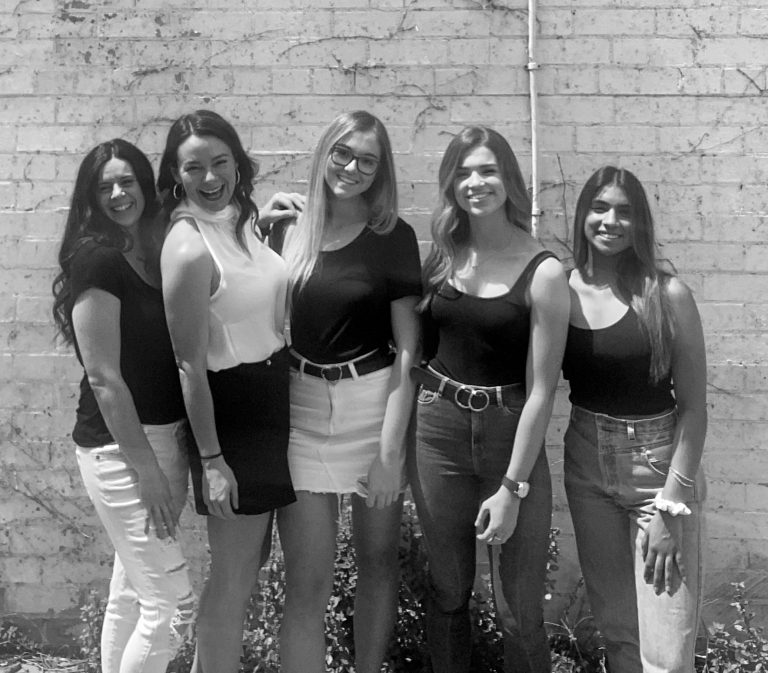
Starting her own business
Going with the times in the early 2010s, Renae decided to move her career in a different direction. “I’d got divorced and had twins by this stage. I could see the industry changing, it was all going online. My life was changing as well. Why don’t I start my own website? So I quit my job and started my own business, a PR agency.”
Like for anyone working in media, the pandemic has been hard for Renae. “I’m really proud of where I’m at right now, having been through COVID and the monumental changes in the industry, I think anyone who remains employed, let alone remains passionate about the media industry is to be applauded. I still really love it.”
Talking about her inspirations, Renae mentions the UK’s appreciation for women. “I’ve always been inspired by the culture in the UK, particularly in media. The UK really respects women and older women in a way that in Australia, we just haven’t historically. It may be because the Queen is the head of state. I just love it. When I work in the UK everyone wants to listen to what I have to say and there are a lot of women in powerful positions, such as former Prime Minister Margaret Thatcher. I really admire that culture of achievement for women in the UK.”
How Flinders influenced Renae
Renae puts her success down to her imagination and creativity during her studies as well as the support of her tutors. “I look back on that as a great grounding. One of my final assignments was on a law topic. I interviewed several women who had just come out of jail in South Australia and were in a halfway house between jail and the real world.
“I interviewed them about their experiences, the mistakes they had made, the things they’d learned and how they were getting ready to go back into the real world. That was a great example of telling people’s stories, what it meant to be a journalist, and putting it all together.
“I think my Flinders University lecturers ought to be applauded for encouraging me to do that. If I had done a textbook assignment, I just wouldn’t have been as passionate and engaged. That’s what really cut my teeth so that when I actually came to interviewing people, I’d already done it in quite an extreme circumstance.
“Flinders is a really great university and I think one doesn’t really appreciate these things until much later in life. The grounds are absolutely beautiful. It was a really easy way of life, having medical, sporting and social facilities all on the one campus and being able to structure your timetable so whenever you are on campus you can access everything in your life. Plus, it was really affordable. It was a really great experience.”
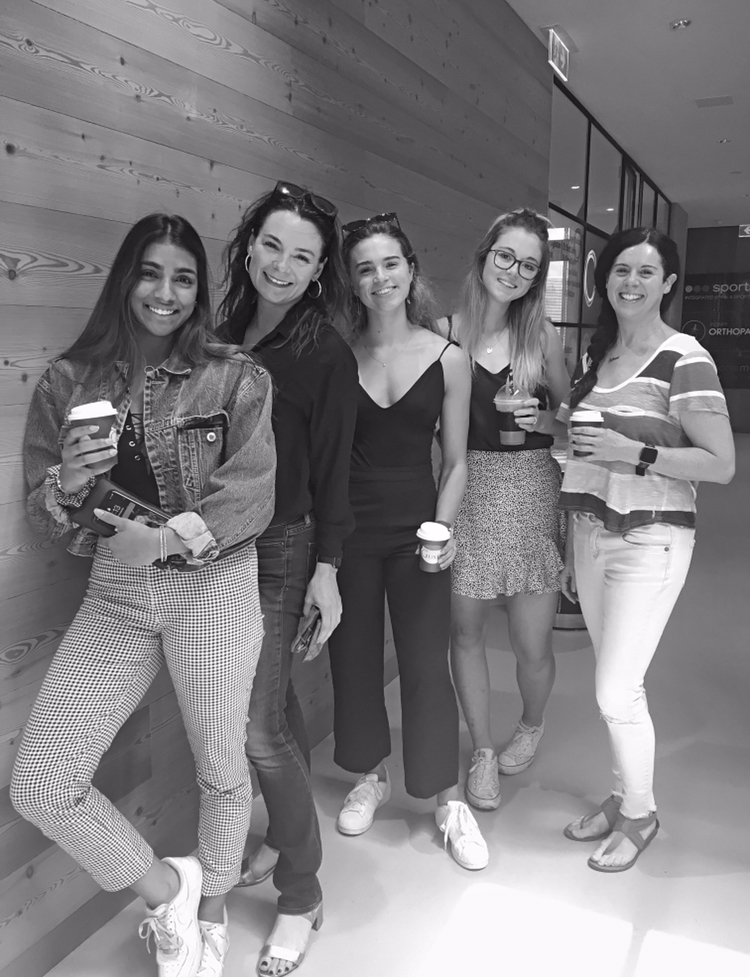
Becoming a mentor
“I’m at that point in my life at which it’s really nice to give back and reconnect with where I came from because I’m not living in Australia at the moment. So it’s wonderful. In my era, Flinders didn’t have a mentorship program, which is why I get so involved with mentoring young people now. It was a lot harder back then.
“I didn’t know how to write a resume. I didn’t know how the media industry worked. Whereas if you have a mentor, they leave you knowing all of that. You get a really clear picture of what’s out there, which I think was lacking in those days, but it’s not lacking now.”
One of the biggest things Renae wants to pass on to her mentees is that you’ve got to crawl before you can walk. “In my career, there were lots of twists and turns. I had my vision, but that meant that I had to almost take a step back, or it felt like it at the time.
“I’ve now learned there are no steps back. There are segues and you learn different things that you then bring to your job. A lot of people I mentor want to move too quickly and I just say, slow down and take it one step at a time, look at the opportunities in front of you, take them and look at what you can learn from that to get you to the ultimate place you want to go.
“The other big thing is that a lot of young people start a job and think, that’s really not what I want to do. When they grow up, they actually pivot and realise it’s fantastic because there are all these other things about this job that they didn’t know.
“A lot of people also ask me whether they should try and work or study overseas? And the answer for me is always yes. As wonderful as Australia is, getting out there is really important. Australia is not going anywhere. You can always go back. I really love working with young people and supporting them on their journey.”
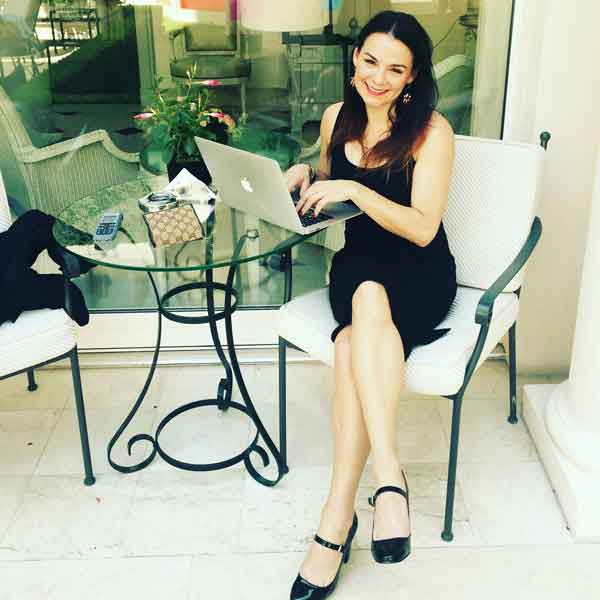
Renae’s current ventures
Bondi Beauty and Renae’s World are Renae’s websites covering everything from beauty and health to travel and relationships. Locked down in Sydney during COVID, Renae also launched a YouTube vlog Where To From Here – Renae’s World.
“I had a team of interns working with me and everyone was depressed because we were locked down in Sydney for nearly five months. So we started this global podcast interviewing people from all over the world and it’s just gone gangbusters. Some of them have got a few thousand views. It was a really good idea because it took us all out of our dark place and it’s really created another sort of business idea.”
Before COVID, Renae ran a public relations agency that represented some of the most luxurious hotel brands in the world. Sadly, the pandemic took its toll and Renae has since pivoted to coaching and mentoring CEOs, managing directors and public relations departments of luxury hotels.
“It’s very similar to mentoring students, but obviously, a lot more in-depth. That’s something that I really enjoy because the hospitality industry has been decimated by the pandemic and there are a lot of new people coming in, who don’t have the basic skills. So I’m there to support them on that. It’s wonderful and something that I can go global with.”
The Bachelor of Arts holds many opportunities
Renae’s story is just one example of many. The BA provides endless career paths depending on your passions and interests. With over 32 majors and minors to choose from, you can create a degree that’s unique to you. Drama and Applied Linguistics? Sure. Indigenous and Australian Studies combined with Visual Arts? Why not?
Find out more about the Bachelor of Arts at Flinders University.

